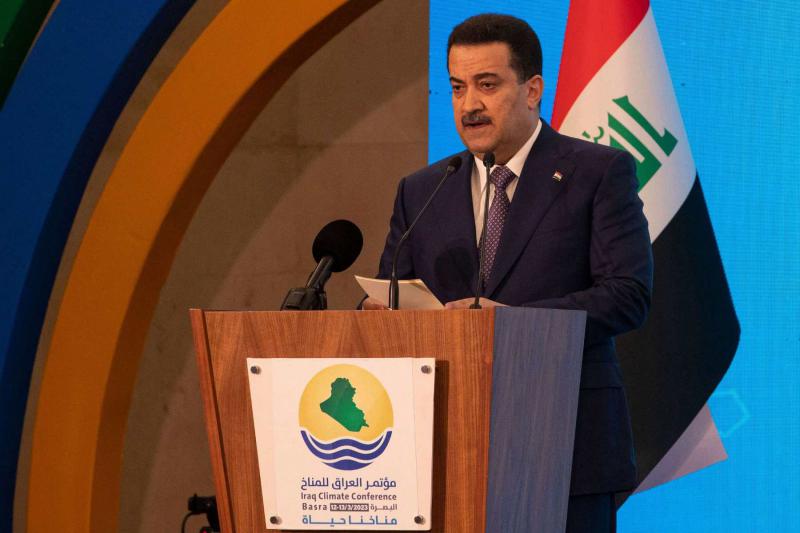Iraq’s prime minister has announced broad initiatives to combat the country’s many victims of climate change, including ambitions to use renewable energy to meet a third of the nation’s electrical needs.
The problems in the fragile nation have gotten worse for years due to climate change. Whole bodies of water have been dried up by droughts and elevated salinity, which have also killed crops, animals, and farms. As a result of frequent sandstorms, hospitals have seen waves of patients with respiratory problems.
“More than seven million citizens have been affected in Iraq … and hundreds of thousands have been displaced because they lost their livelihoods that rely on agriculture and hunting,” Prime Minister Mohammed Shia al-Sudani said in a speech to open the two-day Iraq Climate Conference in Basra.
Read Also: ipcc-set-to-release-solution-oriented-6th-climate-assessment-report
According to Al-Sudani, the Iraqi government is developing a national strategy to combat climate change that includes a number of actions it aims to implement by 2030. The plan calls for the construction of renewable energy facilities, the modernization of antiquated and ineffective irrigation methods, the reduction of carbon emissions, the fight against desertification, and the preservation of the nation’s biodiversity.
One of the initiatives calls for Iraq to plant 5 million trees nationwide as part of a large afforestation drive. Iraq also plans to use renewable energy sources rather than fossil fuels to meet one-third of the nation’s electricity needs.
Al-Sudani stated that he also intends to shortly host a regional summit in Baghdad on the issue.
Iraq’s water problems have been made worse by developments in its neighbours.
Iraq relies on the Tigris and Euphrates rivers for nearly all its water needs. They flow into the country from Turkey and Iran. Because those countries have constructed dams that have either blocked or diverted water, shortages have worsened in Iraq.
Climate change and its impact on Iraq’s water resources and agriculture also comes at an economic cost, destroying people’s livelihoods and making it more likely for Iraq to hike up its imports for basic staples that were once heavily produced in the country, such as wheat. The government once subsidized seeds, fertilizer and pesticides to soften the blow of increasing costs on wheat farmers and maintain a high level of production but slashed them two years ago.
Story adapted from VOA
